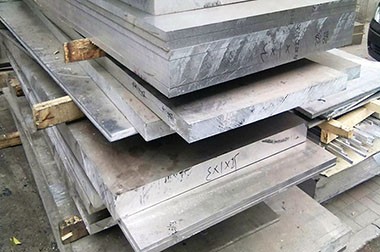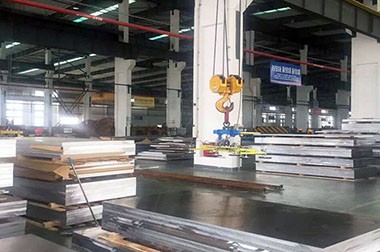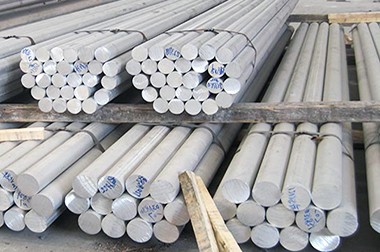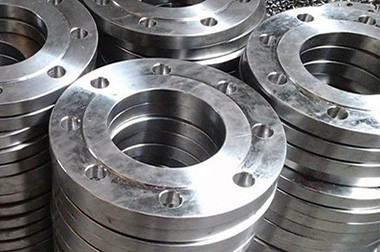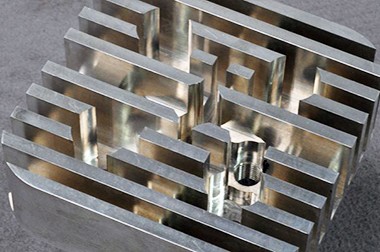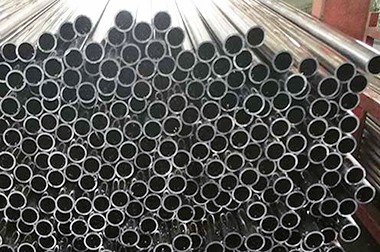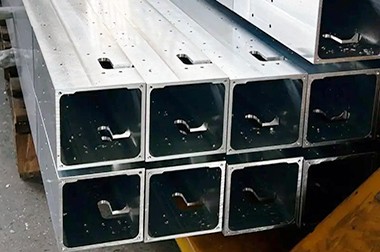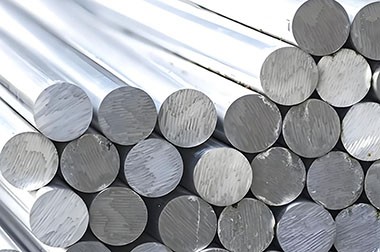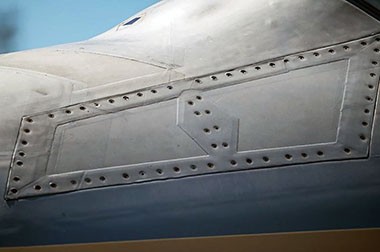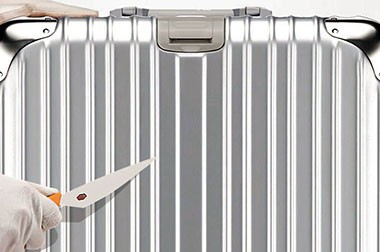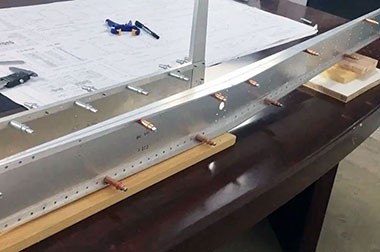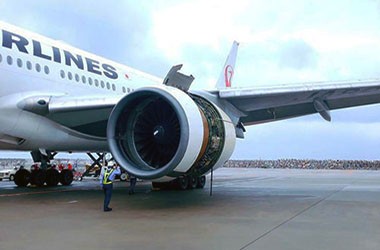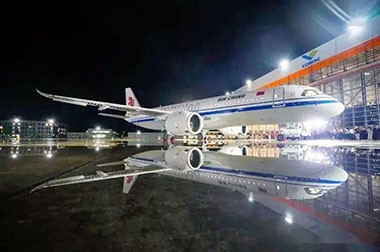2124 2219 Aerospace Aluminum for Engine Support Structure
Aircraft engine support structures must bear the weight of the engine and dynamic loads, ensuring stability, connectivity, and resistance to extreme environments such as high temperatures, high pressures, and corrosion.
The combination of 2124 and 2219 alloys offers the benefits of strength, toughness, high-temperature resistance, and fatigue performance, making them ideal choices for aircraft engine support structures.
Why Choose 2124 and 2219 Aluminum Alloys for Aircraft Engine Support Structures
1. High Strength and Low Weight
Alloys 2124 and 2219 provide high strength, allowing the support structures to carry more loads at a lighter weight, improving overall aircraft performance and fuel efficiency.
2. Excellent Fatigue Resistance
Both alloys exhibit outstanding fatigue performance, maintaining structural integrity under repeated loads, reducing maintenance frequency and potential failure risks.
3. High-Temperature Resistance
Alloy 2219 is particularly suitable for high-temperature environments, ideal for areas around the engine that experience high heat, while 2124 alloy maintains good high-temperature performance in its annealed state.
4. Weldability and Machinability
Alloy 2219 has good weldability, facilitating processing during manufacturing and assembly, while 2124 alloy also demonstrates good machinability during forming.
2124 Aerospace Aluminum for Engine Support Structures
Characteristics of 2124 Aerospace Aluminum
- High Strength: 2124 aluminum alloy has high tensile and yield strength, making it suitable for bearing heavy loads and high-pressure environments.
- Fatigue Resistance: Excellent fatigue performance allows it to perform well under repeated loads, extending its lifespan.
- Corrosion Resistance: When properly treated, 2124 alloy also exhibits good corrosion resistance in certain environments.
Advantages of 2124 Aerospace Aluminum
- Suitable for high-strength and low-weight applications.
- Maintains good mechanical properties even in high-temperature environments.
Applications of 2124 Aerospace Aluminum
Alloy 2124 is widely used in aircraft engine support structures, capable of withstanding high temperatures and high-stress conditions. Although its corrosion resistance is relatively poor, it is usually enhanced through surface treatments.
2219 Aerospace Aluminum for Engine Support Structures
Characteristics of 2219 Aerospace Aluminum
- High Strength and Toughness: 2219 aluminum alloy maintains excellent mechanical properties in high-temperature environments, making it suitable for extreme conditions.
- Good Weldability: It can be connected through various welding processes, suitable for manufacturing complex structures.
- High-Temperature Resistance: The strength retention of 2219 alloy at high temperatures makes it an ideal choice for engine components.
Advantages of 2219 Aerospace Aluminum
- Outstanding high-temperature performance and oxidation resistance.
- Maintains its mechanical properties even under high-temperature conditions, suitable for extreme environments.
Applications of 2219 Aerospace Aluminum
Alloy 2219 is commonly used in structural components of spacecraft and engine supports, suitable for use in extreme conditions, particularly for its good high-temperature strength, making it ideal for engine components.
Chemical Composition
Composition of 2124
The main alloying element is copper, which provides high strength and good fatigue performance.
Typical alloy composition includes: aluminum (Al), copper (Cu), manganese (Mn), magnesium (Mg), silicon (Si), and others.
| Element | Composition(%) |
| Si | 0.2 |
| Fe | 0.3 |
| Cu | 3.8-4.9 |
| Mn | 0.3-0.9 |
| Mg | 1.2-1.8 |
| Cr | 0.10 |
| Zn | 0.25 |
| Ti | 0.15 |
| Other | 0.2 |
| Al | Remainder |
Composition of 2219
The main alloying element is copper, with small amounts of manganese and magnesium, offering excellent weldability.
Typical alloy composition includes: aluminum (Al), copper (Cu), manganese (Mn), silicon (Si), and others.
| Chemical Element | % Present |
| Si | 0.0 - 0.20 |
| Fe | 0.0 - 0.30 |
| Cu | 5.8 - 6.8 |
| Mn | 0.2 - 0.40 |
| Mg | 0.0 - 0.02 |
| Zn | 0.0 - 0.10 |
| Ti | 0.02 - 0.10 |
| V | 0.05 - 0.15 |
| Zx | 0.10 - 0.25 |
| Other (Each) | 0.0 - 0.05 |
| Others (Total) | 0.0 - 0.15 |
| Aluminium (Al) | Balance |
Users viewing this material also viewed the following
-
2219 Aerospace Aluminum Sheet Plate
2219 aircraft aluminum plate has excellent mechanical properties and high temperature properties, and is suitable for manufacturing aircraft structural parts, fuel tanks and other parts that require high strength and corrosion resistance.
-
2124 Aerospace Aluminum Sheet Plate
2124 alloy has high strength and hardness after heat treatment, and is suitable for manufacturing aircraft structural parts, spacecraft parts and other parts that require high strength and low weight.
-
2219 aluminum alloy is renowned for its excellent high-temperature resistance and high strength-to-weight ratio, making it particularly suitable for applications where structural strength and heat treatment performance are critical.
-
2219 Aerospace Aluminum Forgings
2219 aerospace aluminum forgings are a high-strength, high-temperature-resistant aluminum alloy widely used in the aerospace field.
-
2124 Aerospace Aluminum Forging
2124 aluminum forgings are ideal materials for many high-demand engineering applications due to their high strength, good toughness, and excellent machinability.
-
Due to its unique properties, 2219 aluminum tube is widely used in many aerospace fields, especially in high temperature structural applications.
-
2219 Extruded Aluminum Profile for Aerospace
2219 aerospace aluminum profile is a high-strength aluminum alloy with a high copper content, which gives it excellent strength and toughness.
-
As a leading manufacturer of precision aluminum products, we offer high-quality 2219 aluminum round bars that meet AMS 4162, ASTM B211, and ASTM B247 standards.

